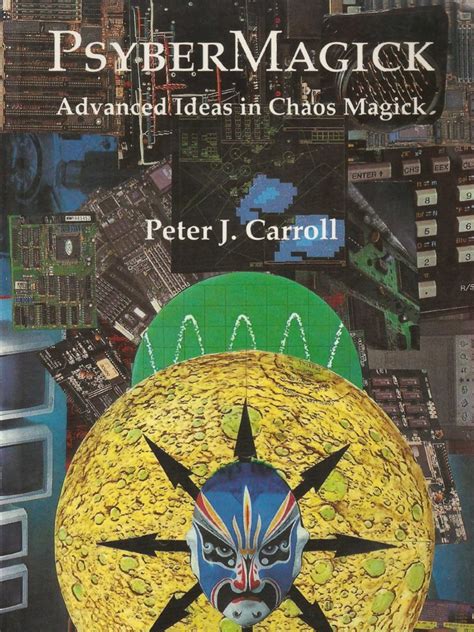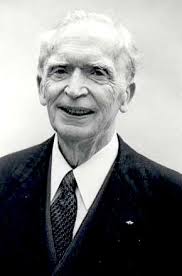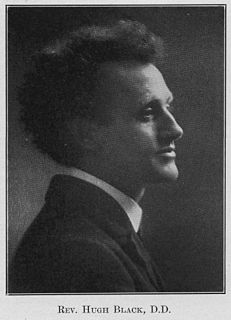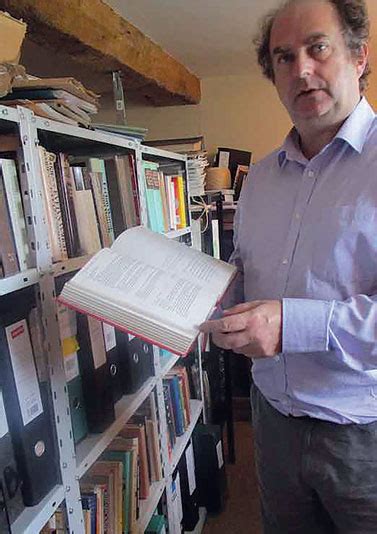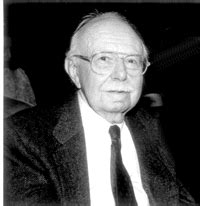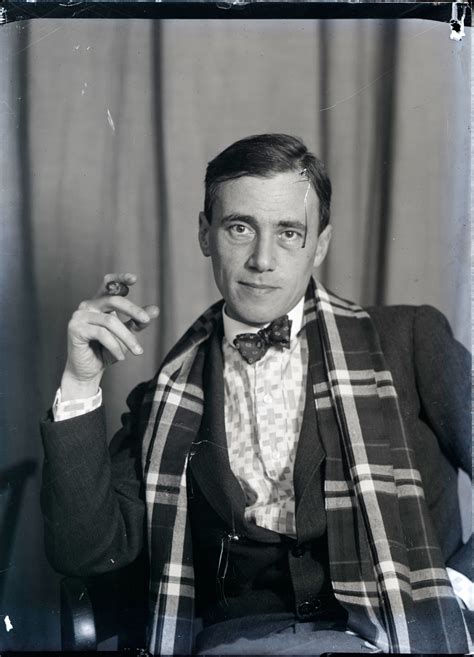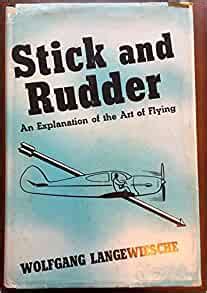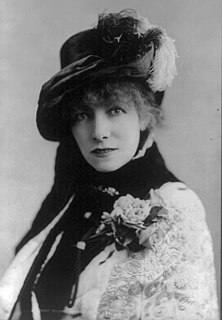Top 347 Sensations Quotes & Sayings - Page 6
Explore popular Sensations quotes.
Last updated on December 4, 2024.
There would seem to be nothing more obvious, more tangible and palpable than the present moment. And yet it eludes us completely. All the sadness of life lies in that fact. In the course of a single second, our senses of sight, of hearing, of smell, register (knowingly or not) a swarm of events and a parade of sensations and ideas passes through our head. Each instant represents a little universe, irrevocably forgotten in the next instant.
We are all animals of this planet. We are all creatures. And nonhuman animals experience pain sensations just like we do. They too are strong, intelligent, industrious, mobile, and evolutional. They too are capable of growth and adaptation. Like us, firsthand foremost, they are earthlings. And like us, they are surviving. Like us they also seek their own comfort rather than discomfort. And like us they express degrees of emotion. In short like us, they are alive.
The love of God uplifts and enlarges us. I can never think of myself anymore as exclusively in this body; I feel that I am present in all bodies. I have no awareness of race or other distinctions at all. In my perceptions, just as I feel my own consciousness in every part of my physical form, I feel you all to be a part of me. Everything that is living I feel within this body. I know the sensations of all. It is not imagination; it is Self-realization. This consciousness is far beyond telepathy. It is awareness of the perceptions of every being. That is the meaning of Christ Consciousness.
The place didn't look the same but it felt the same; sensations clutched and transformed me. I stood outside some concrete and plate-glass tower-block, picked a handful of eucalyptus leaves from a branch, crushed them in my hand, smelt, and tears came to my eyes. Sixty-seven-year-old Claudia, on a pavement awash with packaged American matrons, crying not in grief but in wonder that nothing is ever lost, that everything can be retrieved, that a lifetime is not linear but instant. That, inside the head, everything happens at once.
Slowly but surely I have been soaking Rilke up these last few months: the man, his work and his life. And that is probably the only right way with literature, with study, with people or with anything else: to let it all soak in, to let it all mature slowly inside you until it has become a part of yourself. That, too, is a growing process. Everything is a growing process. And in between, emotions and sensations that strike you like lightning. But still the most important thing is the organic process of growing.
Joan was nothing more than a friend. He was not in love with her. One does not fall in love with a girl whom one has met only three times. One is attracted, yes; but one does not fall in love. A moment's reflection enabled him to diagnose his sensations correctly. This odd impulse to leap across the compartment and kiss Joan was not love. It was merely the natural desire of a good-hearted young man to be decently chummy with his species.
Grace in women has more effect than beauty. We sometimes see a certain fine self-possession, an habitual voluptuousness of character, which reposes on its own sensations and derives pleasure from all around it, that is more irresistible than any other attraction. There is an air of languid enjoyment in such persons, "in their eyes, in their arms, and their hands, and their face," which robs us of ourselves, and draws us by a secret sympathy towards them.
To read as if your life depended on it would mean to let into your reading your beliefs, the swirl of your dreamlife, the physical sensations of your ordinary carnal life; and simultaneously, to allow what you're reading to pierce routines, safe and impermeable, in which ordinary carnal life is tracked, charted, channeled. Then, what of the right answers, the so-called multiple-choice examination sheet with the number 2 pencil to mark one choice and one choice only?
It only take a few minutes of meditation to directly realize we are a river of sensations, feelings, thoughts, perceptions. How can we navigate this evanescent river of life wisely? With mindful awareness and love it becomes clear. You can fight against the river of change, or use its wisdom to teach you how to graciously move and create and flow with the full measure of joy and sorrow, gain and loss, praise and blame that make up every human incarnation.
Though our brother is upon the rack, as long as we ourselves are at ease, our senses will never inform us of what he suffers. They never did and never can carry us beyond our own persons, and it is by the imagination only that we form any conception of what are his sensations...His agonies, when they are thus brought home to ourselves, when we have this adopted and made them our own, begin at last to affect us, and we then tremble and shudder at the thought of what he feels.
The conscious mind is a maelstrom of fleeting thoughts, images, sensations, feelings, conflicting desires, and doubts; barely able to confine its attention to a single clear objective for a microsecond before secondary thoughts begin to adulterate it and provoke yet further trains of mental discourse. If you do not believe this, then attempt to confine your conscious attention to the dot at the end of this sentence without involving yourself in any other form of thinking, including thinking about the dot.
Consider the generosity of our Savior: what He acquired by dying becomes ours by eating. As often as we receive this Sacrament with proper dispositions, we make our own the fruits of all the labors, injuries and sufferings of His life, especially those borne at the time of His passion and death. Just as the power and the sensations of the head reach all the members of the body, in the same way, because Christ is "the head of the Church which is His Body" (Eph. 1:23), the treasures of His grace are made abundantly available to all who through charity are one with Him as living members.
The first thing to remember is the dual nature of your mind. The subconscious mind is constantly amenable to the power of suggestion; furthermore the subconscious mind has complete control of the functions, conditions, and sensations of your body. Trust the subconscious mind to heal you. It made your body, and it knows all of its processes and functions. It knows much more than your conscious mind about healing and restoring you to perfect balance.
If happiness is a state of the inward life, we have to look for its chief obstructions not in outward conditions but in deeper places. Happiness depends in the last issue, as we saw, on the essential view of life. It is not a matter of distractions, nor even of mere pleasurable sensations. There may be an appearance of great prosperity with incurable sadness hidden at the heart, as there is an outward peace which is only a well-masked despair. The way to happiness is indeed harder than the way to success; for its chief enemies entrench themselves within the soul.
Virginia Woolf thought a lot about her own sex when she wrote. In the best sense of the word, her writing is very feminine, and by that I mean that women are supposed to be very sensitive to all the sensations of nature, much more so than men, much more contemplative. It's this quality that marks her best works.
We are all, always, the desire not to die. This desire is as immeasurable and varied as life's complexity, but at bottom this is what it is: To continue to be, to be more and more, to develop and to endure. All the force we have, all our energy and clearness of mind serve to intensify themselves in one way or another. We intensify ourselves with new impressions, new sensations, new ideas. We endeavour to take what we do not have and to add it to ourselves. Humanity is the desire for novelty founded upon the fear of death. That is what it is.
The Ideas of primary Qualities of Bodies, are Resemblances of them, and their Patterns do really exist in the Bodies themselves; but the Ideas, produced in us by these Secondary Qualities, have no resemblance of them at all. There is nothing like our Ideas, existing in the Bodies themselves. They are in Bodies, we denominate from them, only a Power to produce those Sensations in us: And what is Sweet, Blue or Warm in Idea, is but the certain Bulk, Figure, and Motion of the insensible parts in the Bodies themselves, which we call so.
Ah! realize your youth while you have it. Don’t squander the gold of your days, listening to the tedious, trying to improve the hopeless failure, or giving away your life to the ignorant, the common, and the vulgar. These are the sickly aims, the false ideals, of our age. Live! Live the wonderful life that is in you! Let nothing be lost upon you. Be always searching for new sensations. Be afraid of nothing.
Whoever has experienced the power and the unrestrained ability to humiliate another human being automatically loses his own sensations. Tyranny is a habit, it has its own organic life, it develops finally into a disease. The habit can kill and coarsen the very best man or woman to the level of a beast. Blood and power intoxicate ... the return of the human dignity, repentance and regeneration becomes almost impossible.
There is a popular superstition that "realism" asserts itself in the cataloguing of a great number of material objects, in explaining mechanical processes, the methods of operating manufactories and trades, and in minutely and unsparingly describing physical sensations. But is not realism, more than it is anything else, an attitude of mind on the part of the writer toward his material, a vague indication of the sympathy and candour with which he accepts, rather than chooses, his theme?
Sound words can't be understood through formal study of the language alone. They're felt when you immerse yourself in the culture or lifestyle that becomes a part of you. The Japanese language is abundant with onomatopoeia. Even though I've lived in Japan a long time, sound words are still an uncertain territory. And I think new words are being created every day. Even when I don't know a word I can sometimes connect it to a meaning using the sensations produced by the sounds, which feels like I'm playing with words.
Mi Corazon. Mi alma. Son tuyos." My heart. My soul. They are yours, he whispered against the generous curve of her breast as a million sensations, all of them hot, all of them rich, all of them straddling the razor-sharp edge of pain, ripped through his loins like a flash fire and stripped him of everything but consciousness. "Tuyo. Todo que tengo es tuyo." Yours. Everything I have is yours.
When I go biking, I repeat a mantra of the day's sensations: bright sun, blue sky, warm breeze, blue jay's call, ice melting and so on. This helps me transcend the traffic, ignore the clamorings of work, leave all the mind theaters behind and focus on nature instead. I still must abide by the rules of the road, of biking, of gravity. But I am mentally far away from civilization. The world is breaking someone else's heart.
In the short walk between his aeroplane and reaching the outside world at Heathrow, Michael Bywater encountered no fewer than 93 separate notices telling him off for things he hadn't done or which hadn't even occurred to him to do. Being bossed and patronised are two sensations that most sophisticated adults would sooner do without and yet we are bossed and patronised, by the media, by politicians, by business, by advertising agencies and the public services, more now than at any other time in our history. Why should this be?
There are times when I can find myself in a book, too, for two or three hours. But afterward I have such an urge to go out and reach for other people. Very often they're not around. There's also a metaphysical loneliness. We all feel it. The burden of living one's own life is experiencing sensations that no one else can share. You take a step in a house, you start moving around the house, no one else moves with you. You're walking by yourself.
It is not proper to project our feelings onto things or to attribute our own sensations and passions to them. Can it also be improper to see in them a guide, a way of life? To learn the art of remaining motionless amid the agitation of the whirlwind, to learn to remain still and to be as transparent as this fixed light amid the frantic branches this may be a program for life.
Silence emerges from the sound of rain and spreads in a crescendo of gray monotony over the narrow street I contemplate. I’m sleeping while awake, standing by the window, leaning against it as against everything. I search in myself for the sensations I feel before these falling threads of darkly luminous water that stand out from the grimy building facades and especially from the open windows. And I don’t know what I feel or what I want to feel. I don’t know what to think or where I am.
Love is not a feeling; it's a sensation. Drinking water when you're thirsty is a sensation, not a feeling. Being in nature or swimming in the sea is a sensation, not a feeling. Lying down when you're tired is sensational, not a feeling, although you may say it feels good. Feeling is an emotional interpretation of experience and these sensations don't need interpretation; they are just good or right. Making physical love rightly is a sensation, not a feeling. So is the love of God. The same goes for joy and beauty; both are sensational.'
We must eradicate root and branch any fear and dread in our soul concerning the future that is coming towards us... We must develop composure with regard to all the feelings and sensations we have about the future; we must anticipate with absolute equanimity whatever may be coming towards us, thinking only that whatever it may be will be brought to us by the wisdom-filled guidance of the universe.
I conceive of the film as a modern art form particularly interesting to the sense of sight. Painting has its own peculiar problems and specific sensations, and so has the film. But there are also problems in which the dividing line is obliterated, or where the two infringe upon each other. More especially, the cinema can fulfill certain promises made by the ancient arts, in the realization of which painting and film become close neighbors and work together.
The private experience that you perceive forms your world, period. But which world do you inhabit? For if you altered your private sensations of reality, then that world, seemingly the only one, would also change. You do go through transformations of beliefs all the time, and your perception of the world is different. You seem to be, no longer, the person you that you were. You are quite correct — you are not the person that you were, and your world has changed, and not just symbolically.
The greatest blunder I have seen that almost everyone makes is to just speak their mind. It doesn't make any sense. They sound like the squawking ducks in a pond. The mind is not meant to be spoken. The mind is mostly waves of thoughts and sensations from many sources. The mind is meant to know the truth. Know your own mind and use it to speak the truth.
According to the technical language of old writers, a thing and its qualities are described as subject and attributes; and thus a man's faculties and acts are attributes of which he is the subject. The mind is the subject in which ideas inhere. Moreover, the man's faculties and acts are employed upon external objects; and from objects all his sensations arise. Hence the part of a man's knowledge which belongs to his own mind, is subjective: that which flows in upon him from the world external to him, is objective.
At some time in the history of the universe, there were no human minds, and at some time later, there were. Within the blink of a cosmic eye, a universe in which all was chaos and void came to include hunches, beliefs, sentiments, raw sensations, pains, emotions, wishes, ideas, images, inferences, the feel of rubber, Schadenfreude, and the taste of banana ice cream.
To me a good book is like a quiet friend—a friend who’s happy to share thoughts and feelings with you, who’s always there when you need them. Best of all, this friend doesn’t have any secrets. They trust you to understand them. They take you to their innermost places. They share their sensations and emotions—and they let you experience them. Wherever you go and however you feel, they are always by your side. For an hour, a day, a week, or forever, their life becomes yours. Their story is your story. That’s the kind of book I’m trying to write.
[Raphael's] great superiority is due to the instinctive sense which, in him, seems to desire to shatter form. Form is, in his figures, what it is in ourselves, an interpreter for the communication of ideas and sensations, an exhaustless source of poetic inspiration. Every figure is a world in itself, a portrait of which the original appeared in a sublime vision, in a flood of light, pointed to by an inward voice, laid bare by a divine finger which showed what the sources of expression had been in the whole past life of the subject.
Any young boy can nowadays explain human flight - mechanistically: " ... and to climb you shove the throttle all the way forward and pull back just a little on the stick. ... " One might as well explain music by saying that the further over to the right you hit the piano the higher it will sound. The makings of a flight are not in the levers, wheels, and pedals but in the nervous system of the pilot: physical sensations, bits of textbook, deep-rooted instincts, burnt-child memories of trouble aloft, hangar talk.
Feelings are only your history being occasioned by the present moment. If that's your enemy, then your history is your enemy. If sensations are your enemy, your body is your enemy. And if memory is your enemy, you'd better have a way of controlling your mind in such a way that you never are reminded of things that are painful from the past. If you avoid people, avoid having your buttons pushed, avoid going to places that might occasion anxiety; if you're hammering down drugs and alcohol; these are all methods of trying to mount that unhealthy agenda.
She's alone, they kept telling themselves, and surely she danced in no one's arms, yet somehow that seemed to matter less and less. As the night went on, and clarinet and coyote call mingled beyond the lantern light, the magic of their own powder-blue jackets and orchids seemed to fade, and it came to them in small sensations that they were more alone than she was.
Meanwhile, the trees were just as green as before; the birds sang and the sun shone as clearly now as ever. The familiar surroundings had not darkened because of her grief, nor sickened because of her pain. She might have seen that what had bowed her head so profoundly -the thought of the world's concern at her situation- was found on an illusion. She was not an existence, an experience, a passion, a structure of sensations, to anybody but herself.
The artist's personality must be left in his dressing-room; his soul must be denuded of its own sensations and clothed with the base or noble qualities he is called upon to exhibit.... [he] must leave behind him the cares and vexations of life, throw aside his personality for several hours, and move in the dream of another life, forgetting everything.
It is therefore, the interest of all, that every one, from birth, should be well educated, physically and mentally, that society may be improved in its character, - that everyone should be beneficially employed, physically and mentally, that the greatest amount of wealth may be created, and knowledge attained, - that everyone should be placed in the midst of those external circumstances that will produce the greatest number of pleasurable sensations, through the longest life, that man may be made truly intelligent, moral and happy, and be thus prepared to enter upon the coming Millennium.
When an archer desires to shoot his arrows successfully, he first takes great pains over his posture and aligns himself accurately with his mark. It should be the same for you who are about to shoot the head of the wicked devil. Let us be concerned first for the good order of sensations and then for the good posture of inner thoughts.'
Knowledge signifies things known. Where there are no things known, there is no knowledge. Where there are no things to be known, there can be no knowledge. We have observed that every science, that is, every branch of knowledge, is compounded of certain facts, of which our sensations furnish the evidence. Where no such evidence is supplied, we are without data; we are without first premises; and when, without these, we attempt to build up a science, we do as those who raise edifices without foundations. And what do such builders construct? Castles in the air.
In the new alchemy, we have a similar kind of way of thinking. Our internal space includes our intuitions, our thoughts, our senses and our feelings, and from these we construct or build a picture of the outside world. From intuition and thought, we construct time. We also construct space from thought and our sensations. From our senses and our feelings, we experience energy, and from our intuitions and our feelings, we experience motion.










